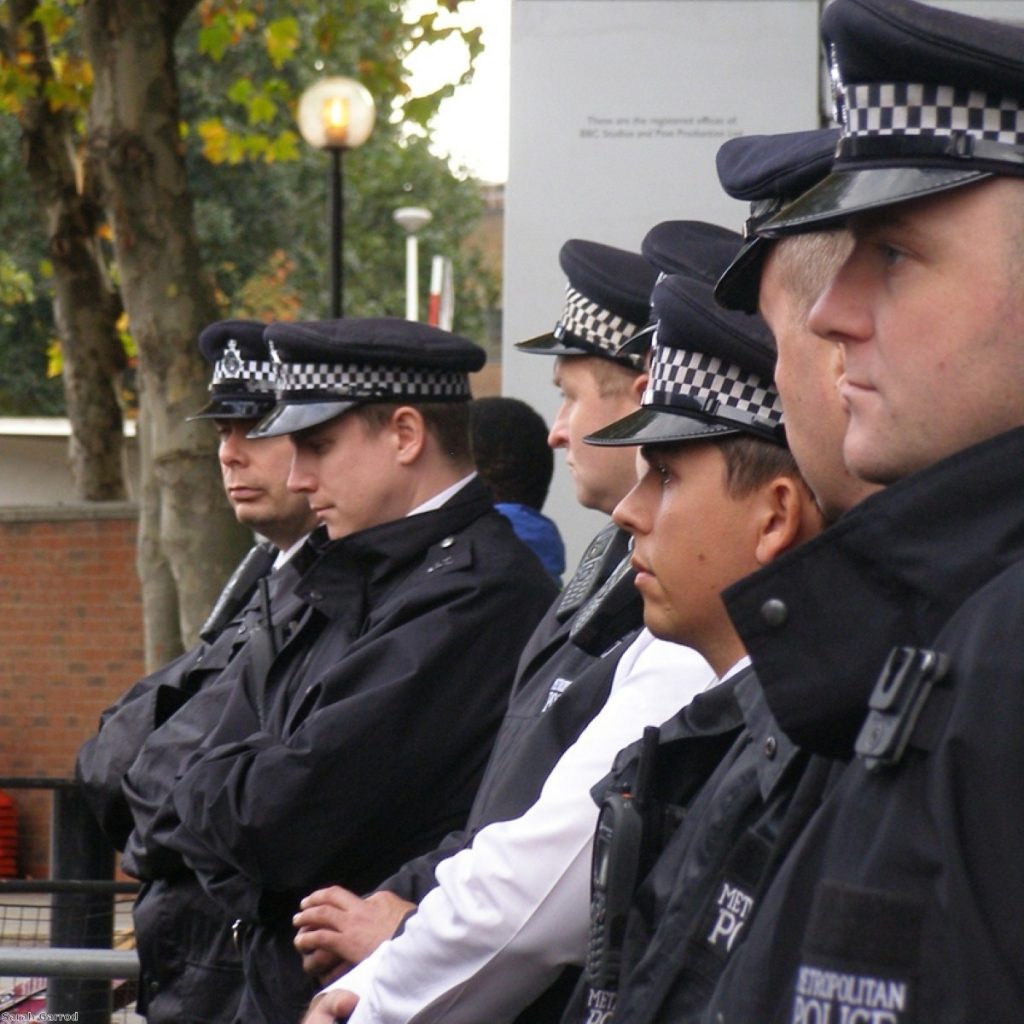Police break ranks as tensions over riots deepen
By Ian Dunt Follow @IanDunt
Senior figures in the British police force broke ranks last night, as they dismissed government efforts to end the rioting as "irrelevant".
In a sign of a fractured relationship around the Cobra emergency response table, Sir Hugh Orde, president of the Association of Chief Police Officers (Acpo), told Newsnight that "political interference" had not affected the police response.
"The police faced an unprecedented situation, unique circumstances," he said.


"The fact that politicians chose to come back [from holiday] is an irrelevance in terms of the tactics that were by then developing.
"The more robust policing tactics you saw were not a function of political interference; they were a function of the numbers being available to allow the chief constables to change their tactics."
The 6,000 police officers on the streets of London were stretched so thin on Monday night that whole parts of the city effectively fell into rioters' control.
Once Theresa May, David Cameron and Boris Johnson returned from holiday, the numbers were boosted to 16,000.
Ministers are understood to have been enraged by the Met's failure to get a grip on the situation on Monday but there was widespread understanding of why it would have adopted a public order approach to fast-changing and unique circumstances, even if it proved ineffective.
"It is wrong for the home secretary and the prime minister to try to take the credit for tough and correct action taken by the police while at the same time trying to pass the buck for any criticisms back to them," commented shaodw policing minister Vernon Coaker.
“The government should not be playing politics with public safety at any time but it is extremely disappointing that this is happening now."
The idea that police tactics changed due to ministerial command were flatly rejected by Police Federation vice chairman Simon Reed.
"To say it publicly is denigrating not just chief officers, it's denigrating the brave officers that were working those nights," he said.
"They are basically saying they were not brave enough to do their jobs. So I know today that police officers up and down the country will be very slighted by what this government has now said."
Police chiefs see the row over the riots as a good opportunity to fight back against government plans to cut the police budget. They have support from Mr Johnson and Labour.
"We need to have some very honest conversations with government about what we stop doing if we are to maintain frontline service delivery at current levels," Mr Reed said.
"It's the 20% cuts in the present spending period that will lead to less police officers, we should be very clear about that."
In a show of unity, acting Met commissioner Tim Godwin appeared alongside Mr Johnson in central London this morning.
But Mr Godwin stayed talking to journalists about cuts to the police service after Mr Johnson had walked away.
"I know these are difficult and testing time but naturally it must be a consideration," he told the media.
Sir Hugh Orde is a leading candidate to take the top job at the Met and is widely respected in police and security circles, but his fractured relationship with political leaders may make that move impossible.

